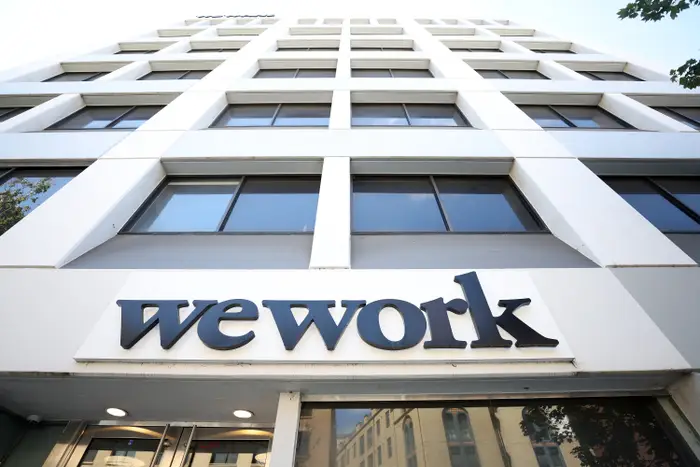
Why Most Startups Fail – And How You Can Turn the Tide
The world of startups is as intoxicating as it is unforgiving. For every unicorn that captures headlines and venture capital windfalls, hundreds quietly collapse in the shadows. It’s not for lack of ambition or effort—but often due to a repeatable pattern of missteps. Understanding why most startups fail is not only essential for entrepreneurs and investors alike, but also for those who see value in turning around distressed assets before they’re lost forever.
According to a 2024 report from CB Insights, nearly 65% of startups fail within their first ten years, with the most precarious time being years two through five. These aren’t random acts of misfortune—they’re the result of systemic weaknesses that can, in many cases, be mitigated or even reversed with the right strategy, leadership, and support.
In this expanded article, we explore the fundamental reasons why startups falter, highlight real-world examples of spectacular collapses, provide current market data, and examine the complex relationship between founders and investors. We also explore how strategic advisory firms like Kognise can play a pivotal role in turning around troubled ventures and unlocking long-term value from what many might prematurely consider a lost cause.
1. No Market Need – Building a Solution in Search of a Problem
42% of startups fail because they create products no one wants or needs.
— CB Insights, 2024
The most common reason for failure is the most preventable: building something without validating whether anyone actually needs it. Founders often fall into the trap of becoming obsessed with their technology, idea, or vision, rather than the problem it solves or the customer who experiences that problem.
Take Quibi, for example—a mobile-first streaming service that raised an astonishing $1.75 billion from top-tier investors. It was marketed as the next evolution in content consumption. But within six months of launching in 2020, the platform shut down. The content wasn’t engaging enough to pull users away from YouTube, TikTok, or Netflix, and the format (10-minute episodes in portrait view) was a solution to a problem that simply didn’t exist.
Lesson: The best startup ideas come from validated pain points, not visionary guesswork.
2. Running Out of Cash – Burn, Baby, Burn (Until It’s Gone)
38% of startups fail because they run out of cash or can’t raise additional capital.
Cash is the oxygen of any business. Startups often make the mistake of treating funding rounds as finish lines rather than fuel stops. Overspending on growth without solid financial controls or a clear revenue model can accelerate death rather than scale success.

A prime example is Beepi, a Silicon Valley-based used car marketplace that raised over $150 million and achieved a paper valuation of more than $500 million. However, Beepi’s overhead costs, bloated payroll, and lack of operational discipline led to its demise in 2017. The company expanded too quickly and failed to match growth with sustainable revenue.
Lesson: Raising capital doesn’t mean you’re winning. Managing capital is where the real game begins.
3. Team Issues – Dysfunction, Ego, and Gaps in Execution
23% of failed startups cite team issues or leadership deficiencies as a core problem.
The founding team is the nucleus of any early-stage business. When that nucleus is unstable—whether due to skill gaps, misaligned vision, or toxic dynamics—the business unravels quickly. In fast-moving environments, the inability to make decisions, communicate honestly, or adapt constructively can be catastrophic.

Theranos, perhaps the most infamous startup of the 2010s, serves as a warning. The company raised over $700 million in venture capital on the promise of revolutionizing blood testing. But the internal culture—guarded, siloed, and unquestioning of its founder’s vision—created a house of cards. A lack of experienced biotech oversight and the suppression of dissenting voices enabled massive fraud.
Lesson: A visionary founder isn’t enough. Execution requires diversity, discipline, and challenge.
4. Poor Investor Dynamics – When Capital Becomes a Liability
While most founders obsess over raising capital, few are prepared to manage it—especially when it comes with expectations that are misaligned with the business’s maturity or market timing. A toxic investor relationship can force a company to prioritise vanity growth metrics over long-term sustainability or force pivots that cannibalise momentum.

Consider WeWork. What began as a promising real estate-tech hybrid rapidly became a cautionary tale of overvaluation, corporate governance collapse, and unchecked ambition. Adam Neumann, the charismatic founder, was heavily backed by SoftBank, which infused billions in capital but failed to impose guardrails. The result? A $47 billion valuation imploded just before its IPO, resulting in massive layoffs and reputational damage.
Lesson: Investors are not just financiers; they are strategic partners. When that relationship fails, the business often follows.
5. Inability to Pivot – Refusing to Adjust the Course
Adaptability is a survival skill in startup life. Yet some founders cling to their original vision long after the market signals it’s no longer viable. When data suggests change, but ego or internal resistance prevails, failure is often just a matter of time.

Netscape, once a dominant browser in the early internet era, failed to pivot fast enough in response to Microsoft’s aggressive entry into the space. Despite its first-mover advantage, Netscape didn’t innovate on the business model or product quickly enough and was eventually acquired by AOL in a much-diminished state.
Lesson: Startups don’t die from changing too much—they die from not changing fast enough.
Can Distressed Startups Be Saved?
Startup failure isn’t always final. Many so-called “distressed” ventures still have valuable intellectual property, market relationships, or growth potential—they’re just structurally unsound, financially imbalanced, or strategically misaligned.
This is where firms like Kognise enter the picture. A modern advisory outfit specialising in corporate revitalisation and venture strategy, Kognise helps unlock dormant potential in struggling startups.
How Kognise Adds Value to Distressed Startups
1. Governance Reform
Kognise performs full audits of leadership, board composition, and decision-making frameworks. A dysfunctional board or unchecked founder can tank value—restructuring governance brings back credibility and investor confidence.
2. Financial Triage and Restructuring
Whether the business needs bridge funding, cost restructuring, or financial modeling to support further rounds, Kognise offers deep financial expertise through fractional CFOs, funder-side negotiation support, and debt/equity rebalancing.
3. Investor Engagement and Repositioning
They reframe the company’s narrative to attract new capital or re-engage current investors. This includes pitch refinement, updated IMs, and repositioning strategies that reflect the actual value proposition and address investor concerns head-on.
4. Operational and Talent Gaps
Kognise connects startups with key interim talent—from NEDs and growth strategists to technical advisors—who can plug capability gaps without bloating fixed costs.
5. Market Repositioning and Exit Strategy
Some startups aren’t meant to scale but can still achieve profitable exits or pivots. Kognise evaluates asset value (IP, clients, tech stack) and can orchestrate M&A strategies that recover value.
Conclusion: Failure Isn’t Final—It’s a Signal
Startups fail, but not always for good reasons. Often, they just run out of the three things they needed most: time, support, and perspective. Strategic advisory can provide all three—giving founders a second chance and investors a chance at redemption or exit.
In a market where VCs are more cautious, LPs are more demanding, and capital is smarter, startups can no longer afford to guess, drift, or burn. They need partners, not just cheerleaders. They need process, not just passion. They need someone like Kognise, who can see the patterns, intervene early, and get things back on track.





